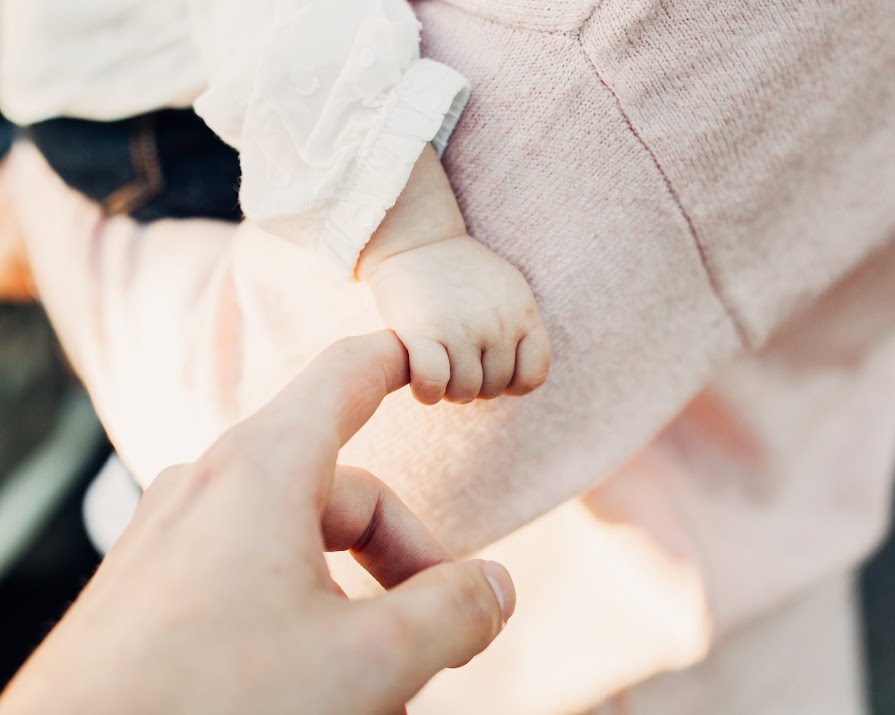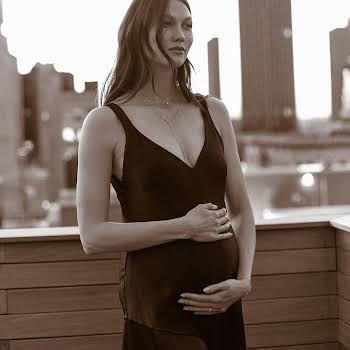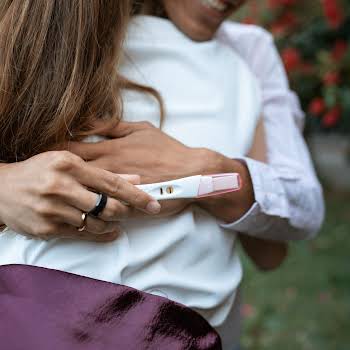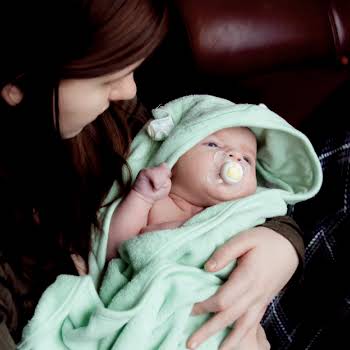
IVF: ‘For every IVF baby, there are a lot more attempts that didn’t work out’
By Edaein OConnell
11th Mar 2020
11th Mar 2020
We know about IVF but what is it actually like to go through it? We spoke with Eve Lorigan about the challenges, the misconceptions and the emotions that come with undertaking IVF treatment
Two weeks ago, Rosanna Davidson opened up about her fertility struggles on The Late Late Show.
She spoke eloquently, sincerely and most of all, truthfully. It must have been a difficult thing, to talk about an aspect of your life that simultaneously can cause such hurt and such joy. Following 14 miscarriages, various tests and the unending weighing of options, Rosanna was blessed with a baby girl Sophia through gestational surrogacy.
Fertility struggles are often spoken about but never truly understood. We get base-level facts from articles and friends of a friend, but what is it really like to go through it?
I spoke with Eve Lorigan who began her IVF journey in 2015. Three years after Eve and her husband took the first step, their baby boy Kai was born. However, the road wasn’t straight, with many bends and roadblocks on the way. Heartaches big and small weaved through the route but the destination was one Eve was determined to get too.
They started trying for a baby after they got married in the summer of 2012. Very soon after she became pregnant but sadly suffered a miscarriage. “We carried on trying for about another year before we said ok something might not be right here.”
IVF
In the year 2014, they visited a GP and carried out various blood and hormonal tests and a sperm analysis. “At that stage, we already got some information. Everything looked normal on my side but unfortunately, my husband was infertile. So we knew because of this we could have to go the IVF route along with the Intracytoplasmic Sperm Injection (ICSI) treatment which is recommended with male infertility because normal IVF wouldn’t work.”
Before embarking on the treatment Eve and her husband had an idea of what IVF was but had no concept of what it would involve for the patients saying, “we didn’t realise how many appointments there were. We had a two-hour drive both ways possibly every second day to the clinic while you are injecting. And it is at a day’s notice. You don’t realise how many days off you need.”
The first stage of IVF involves various internal scans and injections to stimulate follicle growth in the hopes of harvesting an egg and Eve explains that the side effects can be quite a lot to handle. “Imaging turning your ovaries into a bunch of grapes. There is a lot of bloating and discomfort and a lot of headaches and medication. You do this for about two weeks and are scanned every few days.”
There is a surgery to retrieve the eggs and then an anxious few days of waiting to find out if eggs were retrieved. They are then fertilised and monitored for five days. Then on day five if one is healthy an embryo is transferred back into the body. What follows is a waiting period of two weeks named by IVF patients as ‘Pregnant Until Proven Otherwise’. Women are instructed to live as if they are already pregnant which can take its toll mentally as the outcome may not be positive with Eve saying, “I remember thinking during our first trial and during the two-week wait that IVF wasn’t that bad but then when it didn’t work I just thought I had invested every little bit of myself and it is so out of your control.”
Emotional
Eve says that while the physical side effects can be difficult, the emotional strain can be even more so. “It’s very hard to focus on anything else and to distract yourself. You are hopeful but you are anxious. The anxiety, for me, got worse the more often I did it. We had a few miscarriages while we were going through the process, so that fear was always there each time. You end up mentally exhausted, whether you conceive or you don’t.”
“You are trying to manage your expectations but at the same time you need that hope there to keep yourself going through it.”
On the misconceptions about IVF Eve believes many think it’s a quick win. “People seem to think that it usually works. I don’t think people realise how many times people go through it before they might have a baby. For every IVF baby, there are a lot more attempts that didn’t work out.”
Eve herself did not expect it would take a couple of years for it to work saying, “we did our first round of IVF in 2015 and our last in 2018, so that was five rounds over a period of three years.”
Advice
For anyone who wants to go down the IVF route Eve says to do your research and get as many medical indications as you can. “Get as much testing as you can get done as early as you can. I don’t know would a doctor recommend that but we could have saved ourselves four attempts of IVF where I was never going to be able to sustain a pregnancy if we were recommended the particular test I eventually got at ReproMed.”
Also, try and ignore the commentary of others. “Try not to get too offended by people saying stupid stuff to you. Loads of people will have not great advice and it isn’t that they are bad or that they wish you any bad they just don’t know.
And what they say won’t make any difference to the outcome of your treatment. There will always be someone with a story of somebody who tried IVF for seven years and then they stopped and they got pregnant. They are just trying to say something encouraging and they don’t know your situation so try not to get angry.”
Having gone through the heartache of loss did she ever it was just too much? “No, my husband did but I didn’t. I did question if it was the right thing to do to keep putting other people through it. I knew I could keep doing it but once or twice I thought oh God are we just inviting this heartbreak into our lives.”
The couple’s son Kai was born after the fifth IVF attempt and for Eve it was all worth it. “I remember thinking at the time that it’s worth it even if it doesn’t work to know that we have done absolutely every single thing in our power. I would have had way more regret if we didn’t keep trying.”
“It was 100% worth it.”
For more information on IVF visit your GP or the HSE website.
Read more: Coronavirus Diaries: The 28-year-old graphic designer from Dublin who’s living in self-isolation
Read more: Website launched to assist those affected by early miscarriage
Read more: ‘You are not alone’: You need to watch this British MP’s speech about fertility























